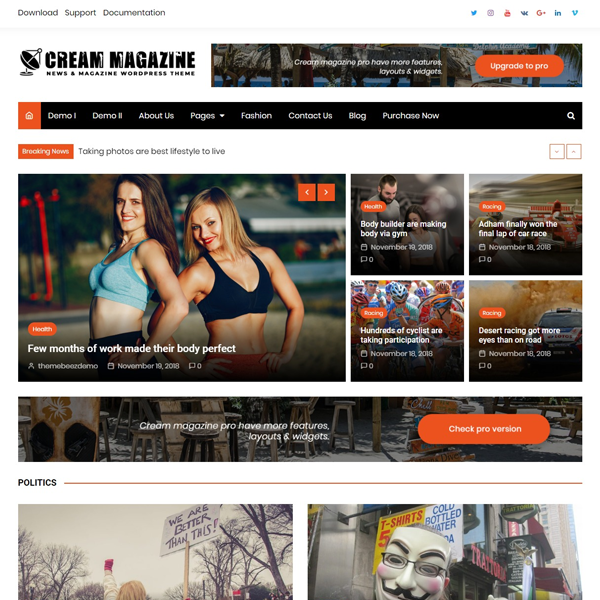NOTE:
Below are the demos for Cream magazine. You will view demos in demo bar experience. If you encountered any problem viewing demos in demo bar, you can close demo bar mode by clicking "X" button at demo bar top right. All the Cream magazine demos library are ready to import.
Go back to Cream magazine page, from there you can view detail about product & download it if you like the product!
This is cream magazine demo page


